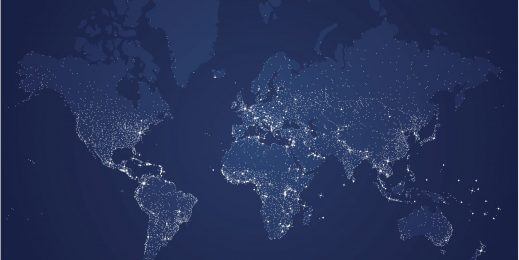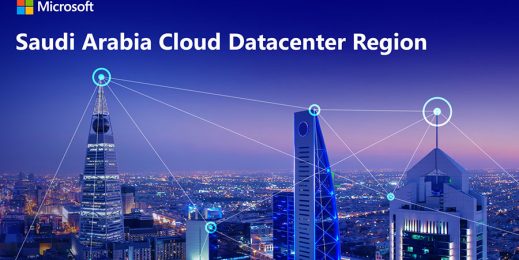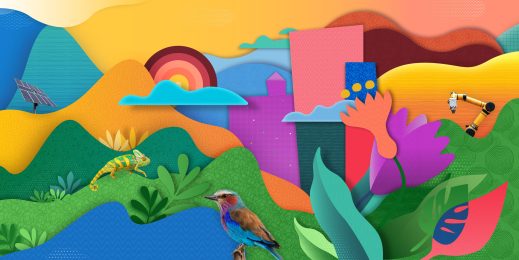
Developers in the Middle East and Africa have the makings of world-class innovators
As a child living in Sierra Leone, Kelvin Doe wanted to create a solution to his neighbourhood’s constant electricity supply problems. He began collecting discarded devices and scrap metal and by the age of 13 had developed a battery that could power his neighbouring homes. His extraordinary talent caught the attention of MIT, eventually making Kelvin the youngest person in the world to be invited to the Institute’s Visiting Practitioner’s Program.
Kelvin is a child prodigy, but his story reflects a trend towards the world increasingly becoming a stage for elite innovators in emerging markets.
For years, commentators have hailed the Middle East and Africa (MEA) as a future hub for technology skills. Not only does the region have a wealth of young talent to draw on, but it also has many unique socioeconomic challenges that have inspired a generation of solution-finders.
In 2019, a GitHub report showed a 40 percent increase in the open source repositories created by African developers. This reflected a higher growth percentage than any other region in the world. And over the past year, the number of active GitHub users in Africa has again risen by at least 0.3 percent.
The innovation potential speaks for itself. Microsoft’s global technology event, Imagine Cup, invites millions of developer students from hundreds of companies to compete for prizes by solving key societal challenges. Since inception, the event has drawn attention to the burgeoning pipeline of talent within the MEA region.
Just recently, the event was won by Team V Bionic from Saudi Arabia and Germany for developing a rehabilitation device that uses neuroplasticity and Azure technology to help rehabilitate people with hand paralysis. The grand prize winner from 2021 also hailed from the region, in the form of Team REWEBA from Kenya, who created a device to remotely conduct post-natal screenings and save infants’ lives. That same year, Egyptian computer science student, Ahmed Kamel and Turkish neuroscience major, Bukle Unaldi, also made it through to the 2021 World Championship, having developed a robotic arm that could be operated remotely, simulating an in-person laboratory experience.
Talent needs platforms to succeed
It’s clear the region is closer than ever to becoming a thriving mecca of world-class developers. But more needs to be done to help local talent succeed for this vision to become a reality. Access to digital tools and skilling platforms is essential, not only to the rise of future developers, but also the creation of skills for much-needed employability in the region.
Research from the World Economic Forum shows that greater private-public collaboration on large-scale upskilling and reskilling initiatives could boost global GDP by $6.5 trillion and create 5.3 million net new jobs by 2030. It’s a big part of the reason why partnerships between NGOs, governments and the private sector to drive capacity building are so important. Microsoft’s various MEA programs alone have trained 3.75 million students in 2021, upskilled 450,000 thousand learners and helped almost 20,000 thousand youths find employment.
The success of initiatives like the Imagine Cup highlights the benefit of creating essential platforms for young developers in the region to thrive and go on to find meaningful employment. According to Ahmed Kamel, “The most important thing wasn’t the money or awards but the credibility the experience gave us for our project as well as for our résumés, to help us get jobs after we graduated last year.”
The event helps participants gain new skills and develop their existing skill set, while providing them with access to mentorship and the opportunity to collaborate with other students. This is key as research shows that mentorship has a dramatic effect on productivity.
Developers heighten their abilities with the right tools
Access to the right tools and products is another essential contributor to success – use of automation, for example, can help developers perform 27 percent better in open source and 43 percent better at work. Not surprisingly, tech companies like Microsoft are increasingly focused on introducing new and effective tools that developers can use to make a real difference.
The recently launched GitHub Copilot, for example, is designed to improve developers’ sense of flow – getting in the zone and staying there – and removing obstacles to let them focus on the most important code they need to write. The AI pair programmer provides full-code suggestions inferred from code and comments.
New tools infused with AI and automation are also helping teams to get the things they want done in a simple, efficient and intelligent way. Microsoft Power Pages is a new low-code development and hosting platform that allows anyone, from low-code maker to professional developer, to design, configure and publish websites for both desktop and mobile through a fluid, visual experience.
Express Design in Power Apps, on the other hand, allows users to upload a PDF, PowerPoint or even a hand-drawn sketch that Express Design will convert into a working app within seconds. These tools provide users with the power of a cloud-based AI supercomputer to help them accomplish their work quickly and effectively, ultimately changing the way they work and live.
Developers solve problems, big and small, across every industry and organization on the planet. It’s perhaps why MEA, with its diverse and complex set of challenges, has inspired a generation of formidable young innovators. But it’s also why nurturing tech talent is key to the future prosperity of the region. When developers have access to the skills, mentorship and tools they need to deliver better, faster and more effective solutions – everyone benefits.





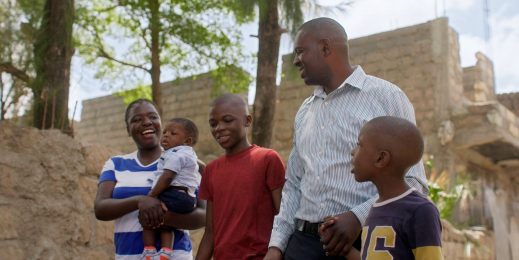


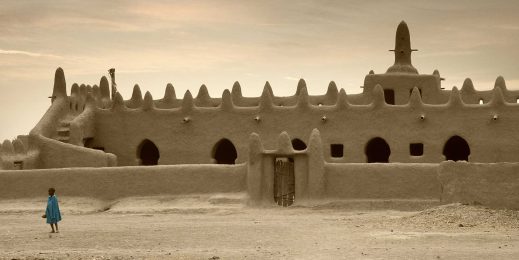

![A security team analyses key data from a visual dashboard.]](https://news.microsoft.com/wp-content/uploads/prod/sites/133/2023/04/Security-Sprint_TL_Banner-Image-519x260.jpg)
